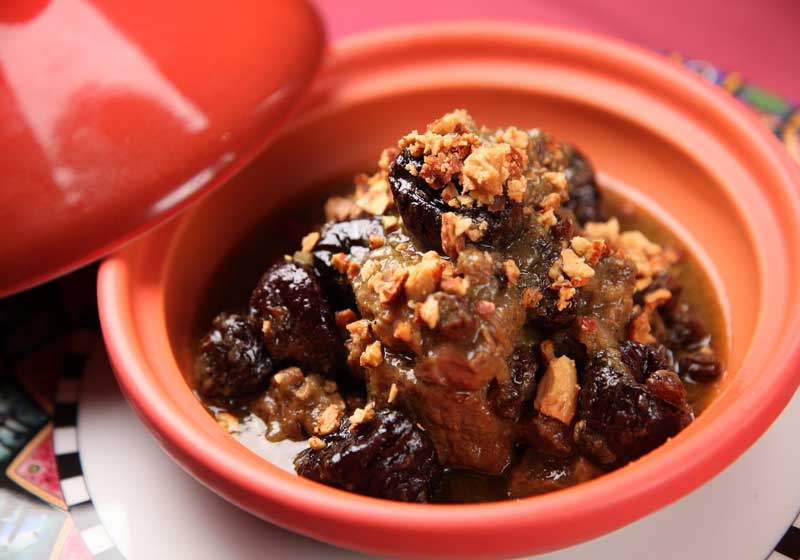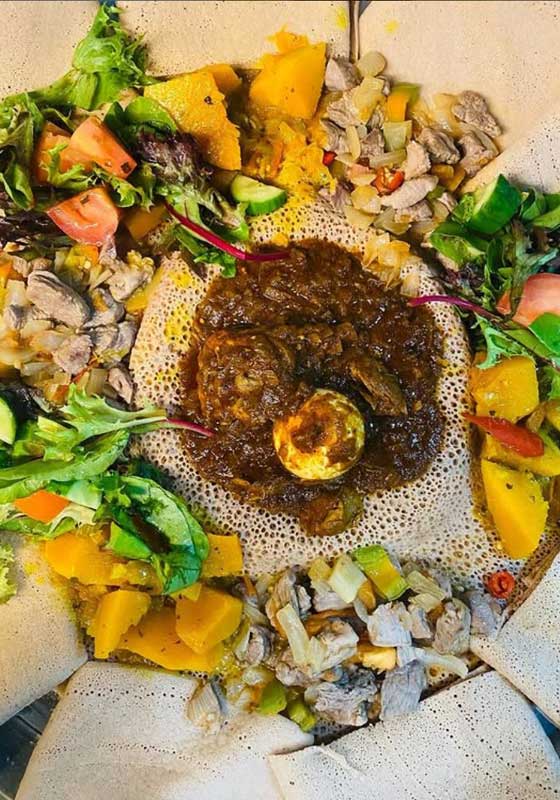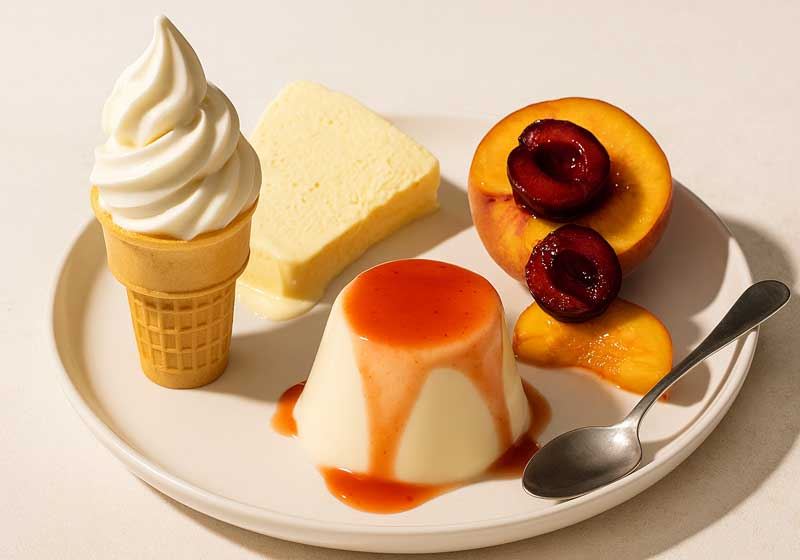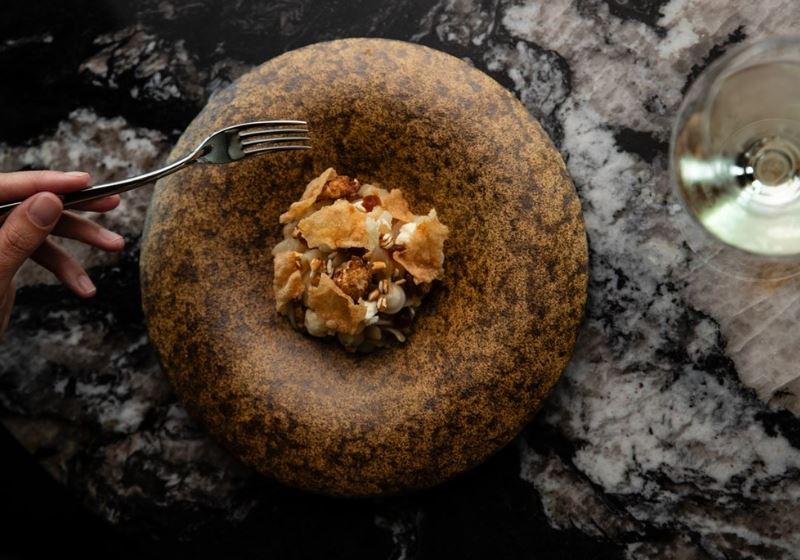By Leigh O’Connor.
African cuisine is not a single flavour - it is a heartbeat, a rhythm carried in the smoke of village fires, in the chatter of bustling markets, in the warm, spiced air that greets you when a pot is lifted from the stove.
To taste African food is to taste the soul of a continent - vast, ancient and endlessly alive.
It begins in the soil, in grains of millet and sorghum that sway golden under the sun, in cassava pulled from red earth, in yams that grow heavy and proud. These humble gifts of the land are transformed into feasts that nourish far more than hunger.

A ball of fufu, pillowy and warm, carries with it the comfort of generations. A round of injera, spongy and sour, becomes both table and tool, inviting hands to tear, dip and share in the communion of a meal.
The flavours are bold, untamed and deeply human. In West Africa, stews simmer for hours, thick with peanuts, chilli and tomatoes until the air is heavy with their perfume. In Morocco, saffron and cinnamon rise from bubbling tagines, weaving sweetness into the savoury, a reminder of caravans and spice routes that once crossed the desert sands.
Along the Indian Ocean, the whisper of coconut and the tang of lime drift through curries that carry both African heart and Eastern influence. In the south, smoke curls from the braai - meat crackling over flame, laughter rising with the embers into the night sky.

Yet African cuisine is not just about taste - it is about the way food gathers people. A pot is placed in the centre and hands reach in, not just to eat, but to connect. Food here is not portioned or measured; it is shared, overflowing with generosity, an unspoken invitation to belong. Around these meals, stories are told, songs are sung and silence is filled with the comfort of togetherness.
History lingers in every dish. The spices of North Africa speak of ancient traders. The rice and beans of the coast carry whispers of Portuguese sailors. The gumbo and okra of the Americas bear the memory of Africans taken far from home, who carried seeds and recipes across the ocean, sowing fragments of their homeland into new soil.
Through conquest, migration and exile, African cuisine endured - resilient, adaptable, but always rooted in identity.

Today, its voice grows louder. In cities across the world, African Chefs reinterpret tradition, plating elegance without losing authenticity. Still, on the streets of Lagos or Nairobi, the sizzle of suya skewers, the golden crunch of fried plantains, the simple sweetness of roasted maize remind us that food is as much about place as it is about flavour.
African cuisine is poetry written in spices and fire. It is the hum of community, the resilience of history, the abundance of the earth. It is memory and promise, past and future served together on one plate.
To ask, what is African cuisine? is to be reminded that Africa itself cannot be captured in a single word - only felt, tasted and remembered.





